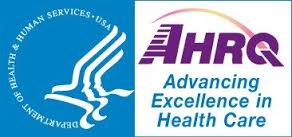Why the Threatened AHRQ Is Vital to the Hospital Industry
AHRQ’s evidence-based research and protocols have had a major impact on healthcare safety and delivery.
The Agency for Healthcare Research and Quality (AHRQ) is on the chopping block — again — and supporters are gearing up for what could be their biggest fight yet to save the little-known agency. In his fiscal year 2018 budget proposal, President Donald Trump has proposed eliminating AHRQ’s funding and folding the agency into the National Institutes of Health, which itself is facing a proposed 18% cut to its current $31.7 billion budget, and a requested $1.2 billion cut in FY 2017 funding. Those in favor of the merger say AHRQ’s work duplicates work that NIH does. But its supporters say it plays a unique and essential role in healthcare delivery.
 Created in 1989, AHRQ’s mission is to produce evidence that ensures that healthcare is delivered in the safest, most effective and efficient means possible to patients. One of AHRQ’s biggest successes has been in reducing hospital-acquired conditions, particularly central line infections. Between 2010 and 2015, the number of HACs dropped by 21% as a result of AHRQ research and protocols. That resulted in 3 million fewer people being harmed and 125,000 lives saved, at a cost savings of $28 billion, according to the agency.
Created in 1989, AHRQ’s mission is to produce evidence that ensures that healthcare is delivered in the safest, most effective and efficient means possible to patients. One of AHRQ’s biggest successes has been in reducing hospital-acquired conditions, particularly central line infections. Between 2010 and 2015, the number of HACs dropped by 21% as a result of AHRQ research and protocols. That resulted in 3 million fewer people being harmed and 125,000 lives saved, at a cost savings of $28 billion, according to the agency.
Reducing central line infections, the deadliest of HACs, has been a major focus for AHRQ. From a $500,000 research grant, the agency gained evidence on how physicians and other clinicians could do a better job monitoring central lines and preventing infections. Protocols were developed and have been implemented in hospitals across the country. In the first 18 months in Michigan, where the program was piloted, hospitals saved 1,500 lives and nearly $100 million — pretty good for return on investment. The agency has also funded evidence-based research on how to reduce catheter-associated urinary tract infections and how to reduce falls and pressure ulcers...
- Tags:
- Academy Health
- Agency for Healthcare Research and Quality (AHRQ)
- American Hospital Association
- Barack Obama
- Donald Trump
- Emily Holubowich
- Hospital Consumer Assessment of Healthcare Providers and Systems (HCAHPS)
- Leah Binder
- Leapfrog Group
- Medicaid
- Medicare
- Meg Bryant
- Nancy Foster
- National Institutes of Health (NIH)
- patient safety
- Patient Safety Culture Assessment
- Richard Kronick
- TeamSTEPPS
- U.S. Department of Health and Human Services (HHS)
- U.S. House Appropriations Committee
- University of California at San Diego
- Login to post comments